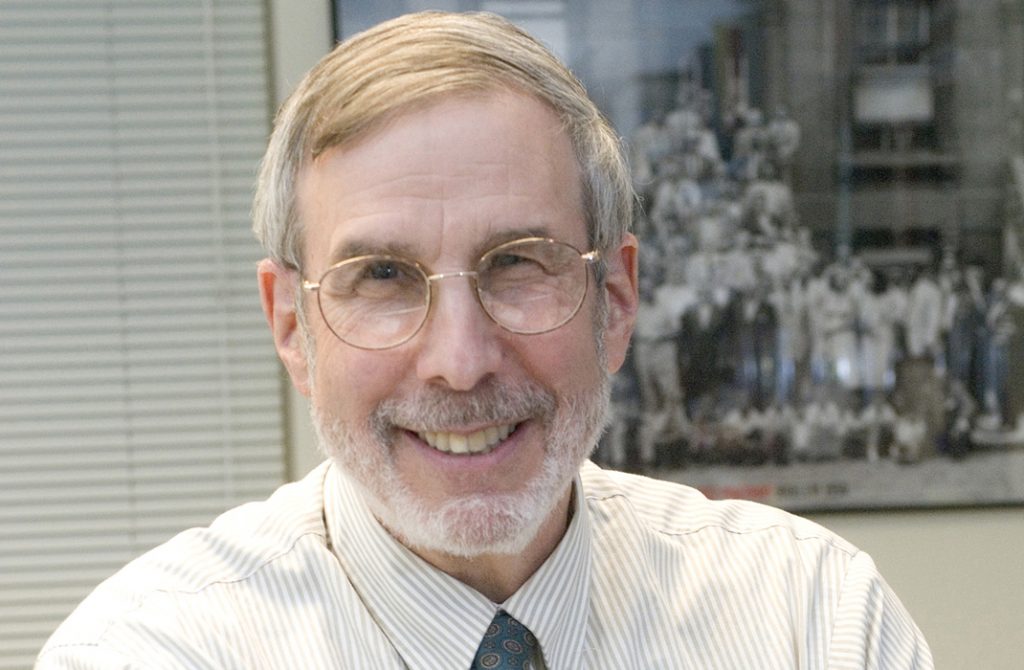Last November, the state lost a leading figure in the federal judiciary when Judge Joseph L. Tauro of the US District Court for Massachusetts passed away. On June 7, BC Law Professor Mark Brodin (pictured above) was a featured speaker at the judge’s memorial service, which took place at the John Joseph Moakley United States Courthouse in Boston. Brodin was part of a star-studded lineup that included US Supreme Court Justice Stephen Breyer, US District Court Chief Judge Patti Saris, former Massachusetts Governor Michael Dukakis, and Commissioner of Major League Baseball Robert Manfred, among a number of others.
In his speech, Brodin, who was the very first law clerk to Judge Tauro from 1972-74, recalled Tauro’s great compassion in several memorable experiences, including a trip the two took to visit the Belchertown School for the Mentally Disabled. Brodin described the horrific conditions they witnessed and the effect that experience had on the judge, saying it was in that moment that Tauro became “the voice of the unheard, of the least among us.”
Brodin also referenced the many landmark decisions Tauro wrote during his time on the bench, and the two in particular that stood out to him. One enjoined public school officials from removing library books that they find offensive and inappropriate for young minds. Brodin referenced two lines from the case that resonated with him: “‘The most effective antidote to the poison of mindless orthodoxy is ready access to a broad sweep of ideas and philosophies. There is no danger in such exposure. The danger is in mind control.’” Brodin spoke of how proud the judge was to have Nat Hentoff, journalist and fierce defender of the First Amendment, write of him: “There is a federal judge in Boston, Joseph Tauro, whose passion for the First Amendment would have greatly gratified James Madison.”
The second case forbade forced medication and isolation of psychiatric patients. “‘Whatever powers the constitution has granted our government, involuntary mind control is not one of them,’” Brodin said, referencing lines from Tauro’s decision on the case.
Brodin also pointed out that Judge Tauro was the very first federal judge to rule that the so-called defense of marriage act, defining marriage exclusively as a union between a man and a woman, was unconstitutional.
“These opinions are the painstaking, meticulous, thoughtful work product of a jurist at the very highest level of his craft,” Brodin said. “A true judicial statesman, who understands that the calling of a judge, the mission of a judge, is to translate the law to the common benefit of the society, to all its citizens, not just the fortunate and the privileged. To be, in short, the voice of the unheard. The absolute clarity of that moral purpose, as well as his poetic eloquence in employing it, mark Joseph Tauro’s iconic career on the bench, and it ennobles us all.”
Read Judge Tauro’s obituary in the Boston Globe
Read Professor Brodin’s full remarks


